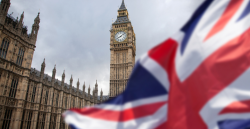Hans Leijtens, Director of Frontex, the European Border and Coast Guard Agency, told Euronews this week that he “doesn’t want” to return migrants to Libya— but does anyway. While painting his agency as reluctantly complicit in the abuse of migrants, Leijtens’ comments obscure the role Frontex plays in a system that watchdogs say is knowingly endangering lives and pushing people into forced labor.
Shifting blame while facilitating abuse
Hans Leijtens, executive director of Frontex, told Euronews,
“I don’t want people to be returned to Libya… but if I have to choose, again, I’d rather save lives than not save lives.”
This framing obscures Frontex’s real role. The agency uses aerial surveillance to spot boats crossing the central Mediterranean. They frequently alert Libyan authorities rather than humanitarian rescue groups. Libya, where migrants and refugees face widespread detention, torture, and forced labor, is not a place of safety—and EU agencies know this.
Leijtens defended this approach, saying, “it’s the only way we can do it.” But Human Rights Watch has described such interceptions and returns as violations of international law.
The United Nations has consistently warned that Libya cannot be considered a safe port. Yet Frontex continues to send people back, describing these returns as rescue coordination. The result? Thousands of persons funneled into exploitative detention centers where forced labor and sexual abuse are rife.
Pretending to save lives
Leijtens insists that Frontex has no choice and must act to “save lives.” Yet he ignores the fact that returning persons to Libya puts their lives in jeopardy.
Leijtens described NGOs as “part of the ecosystem,” claiming that Frontex and NGOs speak regularly to “make sure that we don’t block each other.” But NGOs have long said Frontex deliberately obstructs rescue efforts, detains rescue vessels, and promote anti-NGO narratives. Further, Frontex has routinely failed to notify NGOs conducting search-and-rescue missions—organizations that are often better positioned to bring survivors to safety and uphold international protections.
The Frontex chief also sidestepped the issue of the Libyan Coast Guard deliberately attacking rescue vessels and causing drownings at sea.
The truth is Frontex’s approach continues to prioritize border security over human life, despite the agency’s claims to the contrary.
A humanitarian crisis of the EU’s own making
The EU’s cooperation with Libya, particularly through Frontex, has created a system where migrants are intercepted, detained, and exploited — with European complicity. As long as the EU’s border policy relies on externalizing migration control to unsafe regions, more lives will be lost—not saved.
Join us in calling on the EU to stop funding and enabling these abuses. Sign the petition to demand an end to EU cooperation with Libya.







Freedom United is interested in hearing from our community and welcomes relevant, informed comments, advice, and insights that advance the conversation around our campaigns and advocacy. We value inclusivity and respect within our community. To be approved, your comments should be civil.